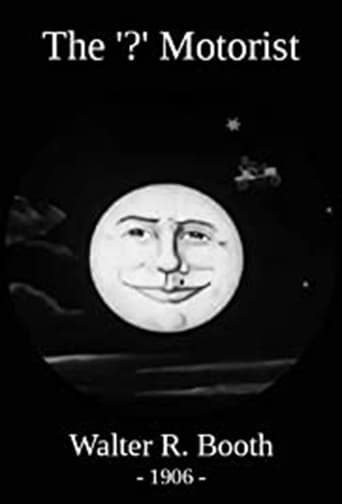
A magical glowing white motorcar ignores policemen, drives up buildings, flies through outer space, and can transform into a horse and carriage.
Similar titles


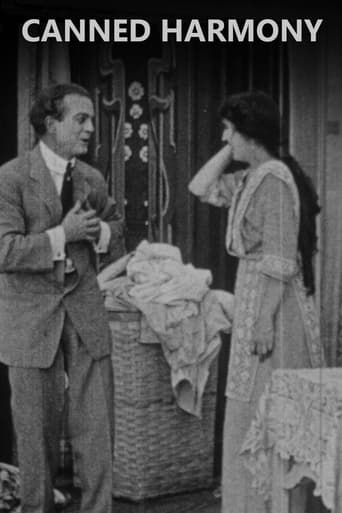
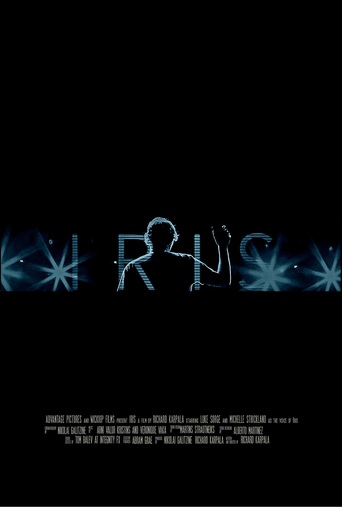
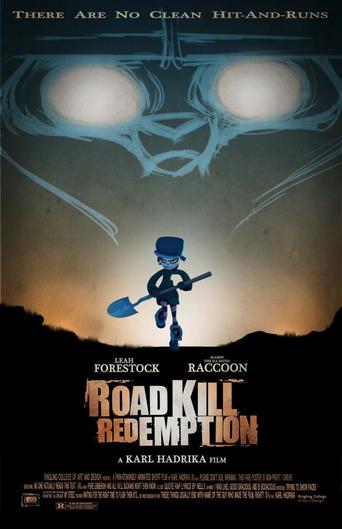
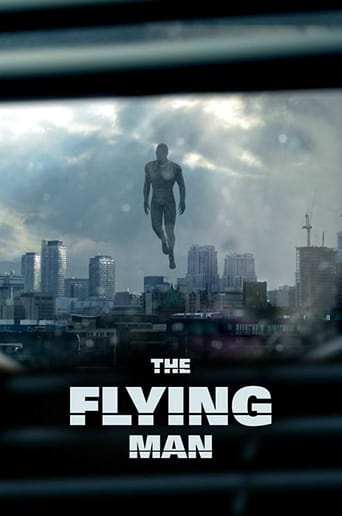
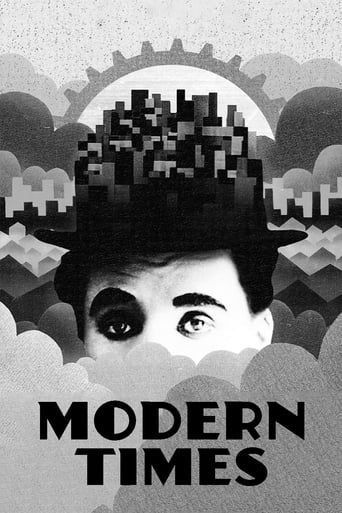
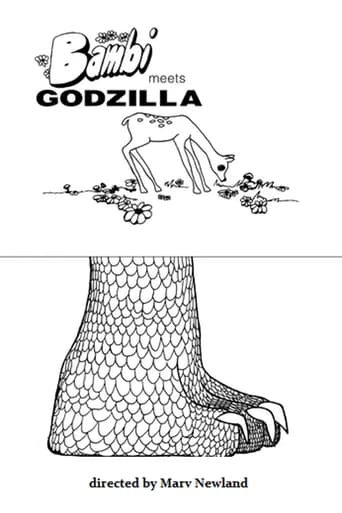
Reviews
Excellent, Without a doubt!!
When a movie has you begging for it to end not even half way through it's pure crap. We've all seen this movie and this characters millions of times, nothing new in it. Don't waste your time.
At first rather annoying in its heavy emphasis on reenactments, this movie ultimately proves fascinating, simply because the complicated, highly dramatic tale it tells still almost defies belief.
The film's masterful storytelling did its job. The message was clear. No need to overdo.
Robert Paul made some pretty good films, from documentary to comedy. Here, he gives the direction over to Walter Booth, who directed various other films for Paul. Clearly these two were trying to imitate Georges Melies, but here the result is actually very good. And, while it has trick effects, these effects are used for both comedic and story-telling purposes, which makes it ahead of Melies's work.A crazy, law-breaking motorist is chased by a cop for speeding. He goes up the side of a building and ends up in space, rides around Saturn's rings, and eventually plummets back to earth, landing in a courthouse. Pretty crazy and absurd, just the thing 1906 audiences were looking for. While it's easy to see how the effects are done, (such as superimposing the car onto the building when it goes up the side) that doesn't really matter as the film is still pretty entertaining and works very well. In fact, it actually would still work well enough today.
One of the unfortunate things about early cinema is that we can only judge that which is currently available to us. The vast majority of silent films are now considered lost, and though some directors' later fame ensured that their films endured (Hitchcock for one), some, such as Robert W. Paul – one of the pioneers of cinema – have been less fortunate. Still Paul has fared better than many of his contemporaries, but much of his work sadly remains lost.R.W Paul was more an engineer than a filmmaker, and at first his only real incentive to produce his own films was to demonstrate their potential. He began by manufacturing replicas of Thomas Edison's revolutionary Kinetoscope in 1894, though by the turn of the century he had set up his own studios in London and was producing short films at a furious rate. After filming such historic events as Queen Victoria's Diamond Jubilee and the ill-fated launch of HMS Bulwark, in 1900 he was commissioned by the army to produce what would now be called a 'recruitment' film, showing what it was like to be in the British army. The finished film, Army Life, was an epic 50 minutes long, making it by far the longest film produced in the world up to that point. Sadly, it's all but lost now, with just a short fragment remaining.From this point on Paul moved away from covering notable occasions and army reenactments, and moved towards short stories, such as those George Méliès was successfully making in France (incidentally, it was Paul who sold Méliès his first camera in 1896). As well as producing an incredibly ambitious adaptation of Charles Dickens' A Christmas Carol – most of which is now tragically lost – in 1901, he would go on to popularise a number of effects over the next few years such as screen wipes, closeups and double exposures. The culmination of this experience over the previous decade was in Paul's most famous film, The '?' Motorist.After watching the short film, certain similarities are obvious between The '?' Motorist and his old customer Méliès' A Trip to the Moon (1902). Though not necessarily more sophisticated, Méliès' space film was longer (14 minutes compared to barely over 2 minutes) and after going to the considerable effort of hand-colouring each of the films' individual frames, it's no surprise that A Trip to the Moon has endured far better than The '?' Motorist. There's certainly a whimsical humour here which is only enhanced by the inspiration for the film – Paul's frustration at being issued a fine for excessive speeding in his motorcar, a crime he tried unsuccessfully to defend himself from.However, though R.W. Paul is the better-known name here, the directing duties were carried out my another character who has become all but forgotten – Walter Booth. Like many of the early filmmakers Booth had begun his career as a magician, and had been collaborating with Paul on some of his more technically impressive films since 1899. By the time of The '?' Motorist in 1906 – his final film with Paul – he was a highly competent director and more than capable of filming some of the challenging effects that were hugely popular with audiences who wanted to see things on the screen which were impossible in real life. He was then recruited by Charles Urban – the most successful film producer and distributor in Britain – where he continued to refine his techniques, and in 1911 made The Automatic Motorist – a more sophisticated remake of The '?' Motorist. It's conceivable that Booth made an appearance in 1901's stop-motion masterclass Undressing Extraordinary – being able to know the exact position to hold as an actor would have required considerable knowledge of the techniques involved – though as no photograph is known to exist of the director we many never know for sure.The '?' Motorist – like many of Paul's films – is a great, charming little film which was still, even in 1906, ahead of much of the cinema in the rest of the world. The title though, is completely nuts. There doesn't seem to be any information on where it came from, but it seems it was the actual title given by Paul, no typos. Its ambiguity certainly gives almost nothing away, and the moment when what seems like a routine runaway film takes a turn as the carriage drives up a building, over the moon and around Saturn's rings cannot have ceased to surprise audiences.With his interest firmly in the mechanics of cinema, Paul's output swiftly reduced after Booth's departure, and by 1910 he had moved away entirely from the film business, concentrating his efforts on more scientific subjects. He died in 1943, living more than long enough to witness cinema emerge as one of the leading forms of entertainment – a form in which he'd played a large role in developing. It's just a shame he's not more widely credited for the advances he made in the medium, certainly in Britain. Maybe one distant day some ambitious director will see the potential in a biographical film about Paul, and it can do for him what Martin Scorsese's Hugo did for Méliès? Or maybe that's just my head in the clouds.
I saw this film today along with quite a few other silent shorts at the German Film Museum in Frankfurt. And, if you want to see it, perhaps you'll want to stop by as well. It is among the best of the shorts they showed--mostly because it was so incredibly stupid--and I mean that in a very positive way! This film begins with some insane drivers out for a ride. A cop tries to stop them and he gets run over for his troubles. But, since this is a wacky film, he's okay AND the drivers begin doing nutty things. I loved seeing the trick shot where the car seemed to drive up the wall! Later, it even flew through space. This was pretty cheesy, but for 1906 it was great. Overall, an incredibly creative and silly film--one that elicited a few laughs when it was played today.
This is an exceptional trick film from early cinema. The trick film was one of the most popular genres of the time, popularized and created by Georges Méliès. This one by Robert W. Paul and Walter R. Booth is superior to Méliès's films in the respect that it's not chained to the tableau style of storytelling that Méliès relentlessly pursued in his attempt to make film an extension of theatre. That is, instead of one complete scene followed by another, generally linked by dissolves, this film is linked by simple, continuously smoother cuts. Scenes are somewhat dissected and action moves from shot to shot in a modern continuity fashion. It also isn't confined to the stage--the cramped studio in which Méliès worked with the camera taking the position of the proscenium arch.The open space allows for the common gag of a car running over a man (replaced by a dummy), which is technically done fairly well here for the time. From there, the car and occupants drive up a building and up to the sky and, eventually, outer space. The sky and outer space bit seems characteristic of what Méliès had been doing. The final gag is also quite clever--playing with the notion of the good 'ole horse carriage as safe and the newfangled automobile as dangerous: a common theme in trick films. This is zany, fun stuff, and I can see why these "cinema of attractions" continued to coexist with the generally less entertaining story films. Apparently, having since left Paul and Paul having since left the movie business, Booth remade this in 1911 as "The Automatic Motorist".
Top Streaming Movies












